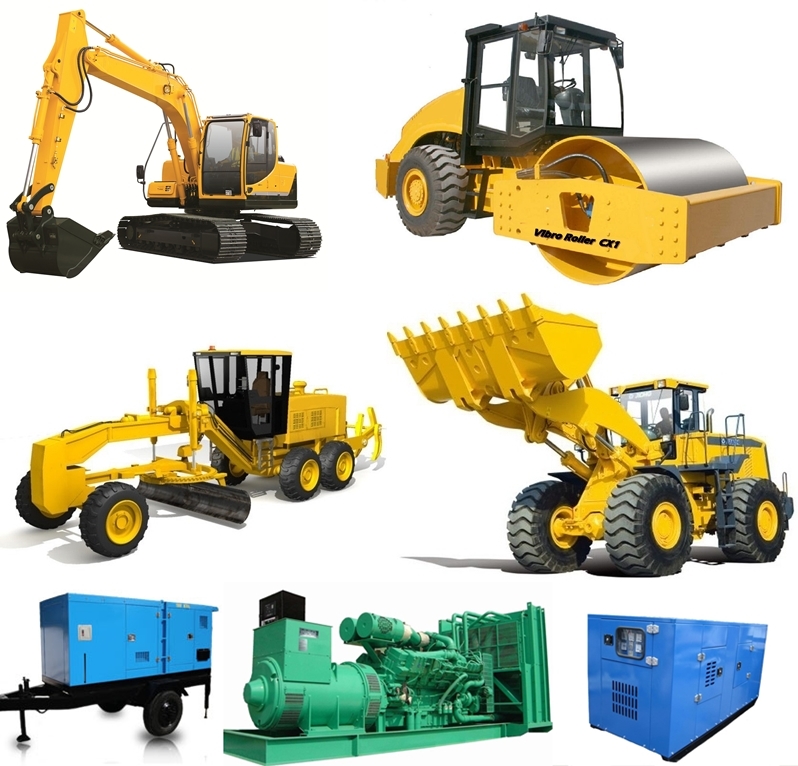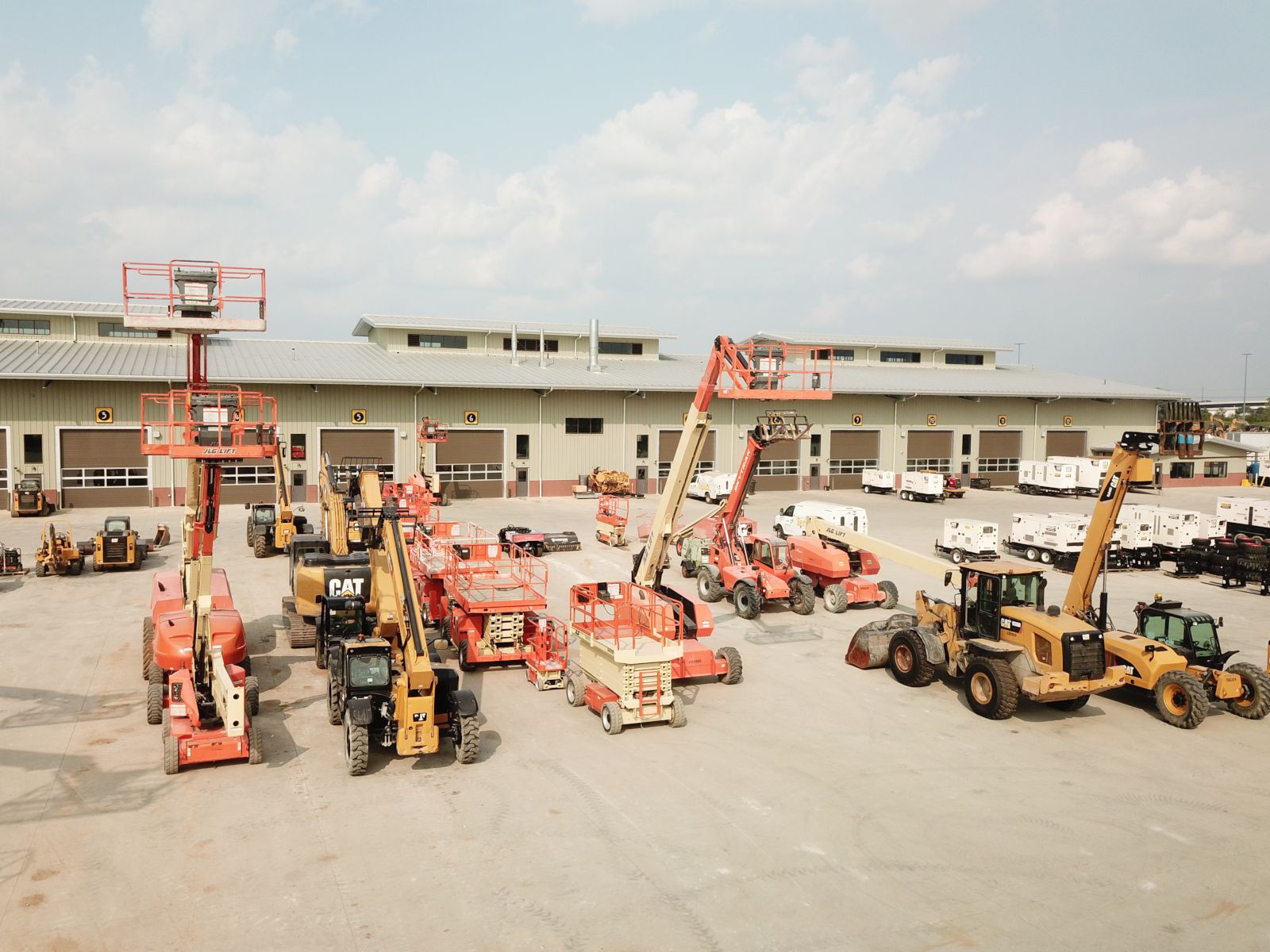Rental Company Near Me: Local Solutions for Equipment Rentals
Rental Company Near Me: Local Solutions for Equipment Rentals
Blog Article
Optimize Your Spending Plan by Comprehending the Expenses Connected With Building Tools Leasings
Recognizing the complete extent of expenses connected with building and construction equipment rentals is vital for optimizing your budget plan. While the initial rental fee might seem uncomplicated, various additional expenses-- such as transportation, fuel surcharges, and upkeep-- can swiftly gather, impacting your economic planning. Additionally, understanding numerous charges and the details of rental contracts can assist avoid unforeseen financial problems. What techniques can be used to effectively take care of these costs and guarantee a much more efficient rental experience?
Review of Rental Expenses
When considering construction tools rentals, understanding the linked expenses is vital for reliable budgeting and job preparation. Rental expenses can differ substantially based upon numerous aspects, including devices kind, duration of rental, and area. The initial rental cost typically mirrors the equipment's market need and its connected functional capabilities, affecting the total cost.
Along with the base rental rate, secondary costs may emerge, such as transportation charges, fuel surcharges, and upkeep costs. It is important to make up these additional expenses to properly examine the overall expense of renting out devices. Additionally, the rental period can affect prices; longer services may receive discounted rates, while short-term leasings could incur higher everyday costs.

Failure of Rental Prices
A thorough understanding of rental prices is important for service providers and task supervisors intending to enhance their budgets. Rental rates for construction equipment generally consist of several elements, including base rates, time-based costs, and usage costs.
Base prices are the core fees related to the leasing of the equipment, often determined by the kind and dimension of the equipment. These rates can differ substantially, influenced by factors such as equipment need, accessibility, and regional market trends. Time-based costs, which may be daily, weekly, or monthly, offer to suit various project timelines and rental periods.
Furthermore, rental rates might include use charges, which apply when equipment is made use of beyond a specified limit, making sure that the rental company can make up deterioration. Seasonal need fluctuations can additionally affect rental prices, with peak building periods normally commanding higher costs.
Moreover, recognizing the rental company's plans regarding upkeep and insurance coverage can provide additional understanding into the total expense structure. By examining these components, service providers can make informed choices, ensuring the choice of rental equipment lines up with both task requirements and budget plan restraints.
Additional Charges to Consider
Understanding the ins and outs of extra fees is crucial for specialists to handle their overall service expenditures effectively. Beyond the basic rental rates, different additional fees can substantially affect the overall expense of devices service. These fees frequently include delivery and pick-up costs, which can vary based on distance and logistics involved in moving the devices to and from the task website.
Moreover, some rental companies may enforce gas additional charges if the devices is returned with much less gas than when leased. It is also vital to know potential cleansing fees, particularly for customized tools that needs extensive maintenance after use.

Extensively assessing the rental contract and clarifying these added fees ahead of time can assist service providers prevent unanticipated prices and make sure that budgets continue to be intact throughout the task lifecycle.
Repair And Maintenance Expenses
Routine repair and maintenance expenses are often ignored aspects that can dramatically influence the general cost of building tools services. When renting devices, it is crucial to think about not just the rental fees however also the potential prices connected with keeping the equipment in optimal operating condition.
Numerous rental firms include fundamental upkeep as component of the rental agreement; nonetheless, extra unforeseen breakdowns or substantial fixings can lead to extra costs. It's essential to evaluate the rental agreement carefully to comprehend what maintenance solutions are covered and what duties fall on the renter.
In addition, devices that is not gauge sheet metal brake well-kept can bring about inefficiencies at work site, possibly enhancing and causing hold-ups job prices. To reduce these dangers, it is suggested to perform normal inspections and maintain open communication with the rental supplier relating to any kind of problems that occur throughout usage.
Insurance Policy and Obligation Expenses
Insurance coverage and liability costs are important elements that can substantially affect the overall expense of building and construction tools services (construction equipment rentals). These costs ensure that both the rental firm and the client are protected from possible monetary losses occurring from crashes, damages, or burglary during the rental duration

Furthermore, customers ought to understand any deductibles or exemptions in the insurance plan, as these can influence prospective out-of-pocket expenditures. Comprehending the conditions of any type of insurance policy coverage is crucial to stay clear of unforeseen expenses. Eventually, budgeting for insurance policy and obligation costs can aid ensure a smoother rental experience and secure versus financial dangers linked with construction jobs.
Final Thought
In conclusion, an extensive Continued understanding of the prices connected with construction devices leasings is vital for efficient spending plan administration. By assessing rental prices, additional fees, maintenance expenditures, and insurance policy requirements, individuals and organizations can reduce unanticipated expenditures. This tactical technique not just boosts cost-effectiveness yet additionally makes certain that tasks progress smoothly and effectively. Eventually, informed decision-making concerning equipment rentals contributes to the overall success of construction ventures.
Rental expenses can vary substantially based on a number of factors, consisting of tools kind, duration of rental, and area (aerial lift rental). The rental period can influence prices; longer rentals may certify for reduced rates, while temporary rentals could incur higher day-to-day fees
By conducting detailed research study and involving with trustworthy rental business, service providers can properly navigate the intricacies of rental pricing, eventually maximizing their monetary resources.
Past the conventional rental prices, different supplementary fees can dramatically affect the total expense of tools leasing. Rental business often supply responsibility insurance policy that covers injuries to third celebrations or damages to residential property, while tools damage insurance coverage can cover the price of repairs or replacement if the rented out equipment is damaged.
Report this page